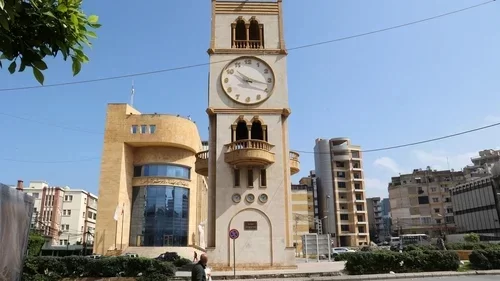Amid the delay or early advancement of the clock in alignment with international time, discussions have increased and opinions have varied about the pros and cons, leading to a dispute among various segments of Lebanese society, following the decision by caretaker Prime Minister Najib Mikati to postpone the start of Daylight Saving Time. However, according to exclusive information to "Warda," Mikati has called for a Cabinet session today, Monday, to discuss the time issue.
Daylight Saving Time is primarily used for economic reasons such as saving energy by making better use of daylight (Benjamin Franklin, 1748). Coordination with other countries is necessary to prevent "chaos" in schedules and the flow of international traffic, especially in air transport. But are the reasons for using this time still valid today? How will the delay in its implementation affect air navigation and the Lebanese economy? The delay has led to a loss of eight million dollars this month.
This change could potentially reduce energy consumption because moving the clock forward 60 minutes for Daylight Saving Time equates to an additional hour of daylight. In this regard, Pierre Khoury, president of the Lebanese Center for Energy Conservation, revealed to "Warda" that implementing Daylight Saving Time reduces energy consumption and the need for electric lighting, which means saving some costs.
According to a study conducted by the Lebanese Center for Energy Conservation, Khoury stated that Lebanon could save eight million dollars in household energy consumption per month, whether from state electricity, private generators, or solar energy, revealing economic losses that this decision will cause. He considers that Daylight Saving Time has been practiced in the past and has become a customary practice in many countries, and its benefits in energy conservation still exist today.
### Negative Impacts... and Confusion in Air Navigation
Travel and tourism offices syndicate president Jean Aboud explained to "Warda" the negative impact of delaying Daylight Saving Time on air navigation, stating, "Time is very important for air navigation. All airlines have networks and set schedules according to global time to interact with these networks in various countries for exchanging schedules and passengers,” considering that these global networks are dependent on this timing.
Aboud revealed that in case of any confusion in schedules, it will be the airlines that pay the costs of this "mistake," since there are 12-13% of travelers who book their tickets "online," and their tickets have been issued at a specific timing with certain data, considering there's a possibility that some passengers may not be able to find out about this update.
Middle East Airlines announced that its schedules and other devices will remain on winter time, aligning with Najib Mikati's decision, but it will adjust its flight schedules to align with international timings.
### Economically: How Will the Decision Affect Lebanon's "Morale and Reputation"?
Regarding the repercussions of delaying Daylight Saving Time on the Lebanese economy, economist Antoine Farah noted in a conversation with "Warda" that if the Lebanese economy were in its previous normal state, rather than in recession and collapse, the negative repercussions of not keeping up with global time would have been greater and worse.
Farah continued, stating, "In the case of the Lebanese economy currently, the repercussions are of lesser significance but still present." He considered the effects of the decision to be somewhat not catastrophic but negative, related to changes in air travel times and the work schedules of citizens and businessmen connected to them abroad. Farah saw this decision as having negative implications for Lebanon's morale and reputation, as follows:
First: Lebanon seems out of the global timeframe, as it has exited from global markets, it is now also exiting global time.
Second: The lightness in decision-making in managing the country.
He added that delaying the implementation of Daylight Saving Time will create internal confusion, as part of the population will adhere to the old timing while another part rejects compliance and will follow Daylight Saving Time.
### Increasing Objections
Mikati, who stated yesterday, Saturday, in a statement that the decision is "purely administrative," expressed regret over the sectarian turn that the matter of time delay has taken, faced opposition from Christian religious authorities and some parties and religious institutions. The media office in the patriarchal residence in Bkerke announced its commitment to Daylight Saving Time, considering the sudden decision issued by Mikati to be "improvised" and does not adhere to international standards.
Meanwhile, caretaker Justice Minister Henry Khoury called on Mikati to reverse the decision to postpone Daylight Saving Time "to avert potential catastrophic risks." As for educational institutions and schools, caretaker Education Minister Abbas Halabi announced adherence to Daylight Saving Time.




